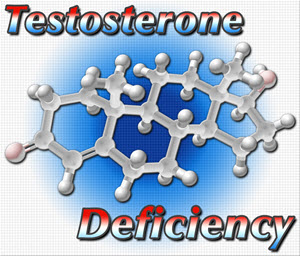Introduction to Low Libido
Low libido, or a diminished sexual desire, is a common concern among American men that can significantly impact quality of life. This condition can stem from a variety of physiological, psychological, and lifestyle factors. Understanding the underlying causes is crucial for effective treatment and restoration of sexual health.
Physiological Causes of Low Libido
One of the primary physiological factors contributing to low libido in men is hormonal imbalance. Testosterone, the key male sex hormone, plays a pivotal role in sexual desire. Aging, obesity, and certain medical conditions can lead to decreased testosterone levels, which in turn can reduce libido. Additionally, chronic illnesses such as diabetes and cardiovascular diseases can impair sexual function by affecting blood flow and nerve function.
Medications also play a significant role. Antidepressants, antihypertensives, and other drugs can have side effects that diminish sexual desire. It is essential for men to discuss potential sexual side effects with their healthcare providers when starting new medications.
Psychological Factors Influencing Sexual Desire
Mental health is another critical aspect to consider when addressing low libido. Stress, anxiety, and depression can profoundly affect sexual desire. The pressures of modern life, including work-related stress and relationship issues, can lead to a decreased interest in sexual activity. Furthermore, past traumatic experiences or unresolved psychological issues can manifest as sexual dysfunction.
Lifestyle and Environmental Factors
Lifestyle choices significantly influence sexual health. Excessive alcohol consumption, smoking, and drug use can all contribute to reduced libido. Poor diet and lack of exercise can exacerbate the problem by affecting overall health and hormonal balance. Environmental factors, such as exposure to endocrine-disrupting chemicals, may also play a role in hormonal imbalances that affect sexual desire.
Diagnostic Approaches to Low Libido
Diagnosing the cause of low libido involves a comprehensive approach. A thorough medical history and physical examination are essential. Blood tests to measure hormone levels, particularly testosterone, can provide valuable insights. Psychological evaluations may be necessary to identify underlying mental health issues. In some cases, specialized tests such as penile Doppler ultrasound may be used to assess blood flow to the penis.
Treatment Options for Low Libido
Treatment for low libido depends on the underlying cause. For hormonal imbalances, testosterone replacement therapy may be an effective option. However, this should be carefully monitored due to potential side effects and risks. Addressing underlying medical conditions, such as diabetes or hypertension, can also improve sexual function.
Psychological therapies, including cognitive-behavioral therapy and couples counseling, can be beneficial for men whose low libido is linked to mental health issues. Lifestyle modifications, such as improving diet, increasing physical activity, and reducing alcohol and tobacco use, can have a positive impact on sexual health.
The Role of Supplements and Alternative Therapies
Some men turn to supplements and alternative therapies in their quest to boost libido. While certain herbs and supplements, such as ginseng and maca root, have been touted for their aphrodisiac properties, the scientific evidence supporting their effectiveness is limited. It is important for men to consult with healthcare professionals before starting any new supplement regimen, as some can interact with medications or have adverse effects.
Conclusion: A Holistic Approach to Restoring Sexual Health
Low libido in American men is a multifaceted issue that requires a holistic approach to treatment. By addressing the physiological, psychological, and lifestyle factors contributing to diminished sexual desire, men can take proactive steps toward restoring their sexual health. Open communication with healthcare providers, a willingness to explore various treatment options, and a commitment to overall well-being are key to overcoming the challenges of low libido.
Contact Us Today For A Free Consultation

- Physical Causes of Low Libido in American Males: Hormones, Illnesses, and Lifestyle [Last Updated On: February 20th, 2025] [Originally Added On: February 20th, 2025]
- Unraveling the Link Between Anxiety and Diminished Sexual Desire in American Men [Last Updated On: March 1st, 2025] [Originally Added On: March 1st, 2025]
- Revitalizing Desire: Strategies for Overcoming Low Libido in Long-term Relationships Among American Males [Last Updated On: March 1st, 2025] [Originally Added On: March 1st, 2025]
- Decoding Medical Science: A Comprehensive Approach To Low Libido Issues [Last Updated On: March 2nd, 2025] [Originally Added On: March 2nd, 2025]
- Comprehensive Overview of Male Libido Issues: Causes, Treatments, and Lifestyle Interventions [Last Updated On: March 3rd, 2025] [Originally Added On: March 3rd, 2025]
- Comprehensive Guide to Understanding and Managing Low Libido in Men [Last Updated On: March 4th, 2025] [Originally Added On: March 4th, 2025]
- Exploring Hormonal Influences on Male Libido: Testosterone, Thyroid, and Prolactin [Last Updated On: March 5th, 2025] [Originally Added On: March 5th, 2025]
- Understanding and Managing Low Libido in American Men: Causes and Treatments [Last Updated On: March 6th, 2025] [Originally Added On: March 6th, 2025]
- Understanding Post-Menopausal Libido: Hormonal, Physical, and Emotional Factors Impacting Sexual Desire [Last Updated On: March 7th, 2025] [Originally Added On: March 7th, 2025]
- Understanding Low Libido in Men: Causes, Impacts, and Effective Treatment Strategies [Last Updated On: March 8th, 2025] [Originally Added On: March 8th, 2025]
- Comprehensive Guide to Understanding and Managing Low Libido in Men: Psychological Perspectives and Solutions [Last Updated On: March 9th, 2025] [Originally Added On: March 9th, 2025]
- Navigating the Impact of Chronic Diseases on Male Libido: A Comprehensive Medical Insight [Last Updated On: March 14th, 2025] [Originally Added On: March 12th, 2025]
- Revitalizing Intimacy: Exploring Medical Therapies for Low Libido in Postpartum American Women [Last Updated On: March 13th, 2025] [Originally Added On: March 13th, 2025]
- Revitalizing Desire: Cutting-Edge Medical Treatments for Low Libido in American Males [Last Updated On: March 15th, 2025] [Originally Added On: March 15th, 2025]
- Psychological Causes of Low Libido in American Men: Stress, Depression, and More [Last Updated On: March 17th, 2025] [Originally Added On: March 17th, 2025]
- Low Libido in American Males: Health Risks and the Importance of Seeking Help [Last Updated On: March 17th, 2025] [Originally Added On: March 17th, 2025]
- Understanding Low Libido in American Males: Causes, Diagnosis, and Treatment Options [Last Updated On: March 18th, 2025] [Originally Added On: March 18th, 2025]
- Medication-Induced Low Libido in American Males: Causes and Management Strategies [Last Updated On: March 19th, 2025] [Originally Added On: March 19th, 2025]
- Understanding and Treating Low Libido in Men: Causes and Comprehensive Solutions [Last Updated On: March 19th, 2025] [Originally Added On: March 19th, 2025]
- Diabetes and Male Libido: Understanding and Managing Low Sexual Desire [Last Updated On: March 19th, 2025] [Originally Added On: March 19th, 2025]
- Chronic Illness Impact on Male Libido: Physiological, Psychological, and Management Strategies [Last Updated On: March 20th, 2025] [Originally Added On: March 20th, 2025]
- Medications Impacting Male Libido: Insights and Management Strategies for American Men [Last Updated On: March 20th, 2025] [Originally Added On: March 20th, 2025]
- Natural Supplements for Low Libido in Men: Efficacy, Safety, and Holistic Approaches [Last Updated On: March 21st, 2025] [Originally Added On: March 21st, 2025]
- Low Libido and Depression in American Males: Understanding and Treating the Connection [Last Updated On: March 21st, 2025] [Originally Added On: March 21st, 2025]
- Advancements in Treating Low Libido in American Males: A Comprehensive Approach [Last Updated On: March 22nd, 2025] [Originally Added On: March 22nd, 2025]
- Hyperthyroidism's Impact on Libido in American Males: Hormonal and Psychological Effects [Last Updated On: March 22nd, 2025] [Originally Added On: March 22nd, 2025]
- Understanding Low Libido in Women Over 50: Insights for American Males [Last Updated On: March 23rd, 2025] [Originally Added On: March 23rd, 2025]
- Understanding and Managing Low Libido in American Males: Causes, Diagnosis, and Treatment [Last Updated On: March 23rd, 2025] [Originally Added On: March 23rd, 2025]
- Understanding and Addressing Low Libido in American Males: Causes, Diagnosis, and Treatment [Last Updated On: March 23rd, 2025] [Originally Added On: March 23rd, 2025]
- Post-Pregnancy Low Libido in American Males: Causes and Solutions [Last Updated On: March 23rd, 2025] [Originally Added On: March 23rd, 2025]
- Low Libido in American Males During Partner's Lactation: Causes and Solutions [Last Updated On: March 23rd, 2025] [Originally Added On: March 23rd, 2025]
- Managing Low Libido in Male Surgical Patients: Causes, Impacts, and Strategies [Last Updated On: March 23rd, 2025] [Originally Added On: March 23rd, 2025]
- Understanding and Treating Low Libido in American Males: Causes and Solutions [Last Updated On: March 23rd, 2025] [Originally Added On: March 23rd, 2025]
- Postpartum Libido in Men: Medical Tips and Strategies for Enhancement [Last Updated On: March 23rd, 2025] [Originally Added On: March 23rd, 2025]
- Understanding and Addressing Low Libido in American Men: A Comprehensive Approach [Last Updated On: March 23rd, 2025] [Originally Added On: March 23rd, 2025]
- Alcohol's Impact on Male Libido: Physiological Effects and Management Strategies [Last Updated On: March 23rd, 2025] [Originally Added On: March 23rd, 2025]
- Revitalizing Male Sexual Desire: Understanding and Treating Low Libido Holistically [Last Updated On: March 24th, 2025] [Originally Added On: March 24th, 2025]
- Understanding and Addressing Low Libido in American Males: Causes, Impacts, and Solutions [Last Updated On: March 24th, 2025] [Originally Added On: March 24th, 2025]
- Understanding and Addressing Low Libido in American Men: Medical and Lifestyle Approaches [Last Updated On: March 24th, 2025] [Originally Added On: March 24th, 2025]
- Effective Interventions for Low Libido in American Men: A Comprehensive Guide [Last Updated On: March 24th, 2025] [Originally Added On: March 24th, 2025]
- Revitalizing Sexual Desire in Middle-Aged Men: A Holistic Approach [Last Updated On: March 24th, 2025] [Originally Added On: March 24th, 2025]
- Low Libido in American Women: Causes, Impacts, and Multifaceted Treatment Approaches [Last Updated On: March 25th, 2025] [Originally Added On: March 25th, 2025]
- Exploring Risks and Side Effects of Low Libido Treatments in American Males [Last Updated On: March 25th, 2025] [Originally Added On: March 25th, 2025]
- Post-Surgical Libido Recovery: Medical Tips for American Males [Last Updated On: March 25th, 2025] [Originally Added On: March 25th, 2025]
- Understanding Low Libido in Men: Causes, Impacts, and Holistic Solutions [Last Updated On: March 25th, 2025] [Originally Added On: March 25th, 2025]
- Understanding and Addressing Low Libido in American Men: Causes and Solutions [Last Updated On: March 25th, 2025] [Originally Added On: March 25th, 2025]
- Chronic Pain and Low Libido: Understanding the Medical Connection in American Men [Last Updated On: March 25th, 2025] [Originally Added On: March 25th, 2025]
- Managing Low Libido in Male Athletes: Hormonal, Nutritional, and Psychological Strategies [Last Updated On: March 25th, 2025] [Originally Added On: March 25th, 2025]
- Understanding and Overcoming Low Libido in American Males: A Comprehensive Guide [Last Updated On: March 25th, 2025] [Originally Added On: March 25th, 2025]
- Sudden Low Libido in American Males: Medical, Psychological, and Lifestyle Factors [Last Updated On: March 25th, 2025] [Originally Added On: March 25th, 2025]
- Addressing Low Libido in American Males: Psychological, Physiological, and Lifestyle Factors [Last Updated On: March 26th, 2025] [Originally Added On: March 26th, 2025]
- Understanding and Treating Low Libido in American Men: A Holistic Approach [Last Updated On: March 26th, 2025] [Originally Added On: March 26th, 2025]
- Strategies to Boost Low Libido in American Males: Medical and Lifestyle Approaches [Last Updated On: March 26th, 2025] [Originally Added On: March 26th, 2025]
- Low Libido in American Men: Causes, Treatments, and Lifestyle Impacts [Last Updated On: March 26th, 2025] [Originally Added On: March 26th, 2025]
- Exploring Low Libido in Men: Causes, Treatments, and Personalized Approaches [Last Updated On: March 26th, 2025] [Originally Added On: March 26th, 2025]
- Exploring Medical Patterns of Low Libido in Young American Males: Causes and Treatments [Last Updated On: March 26th, 2025] [Originally Added On: March 26th, 2025]
- Exploring the Link Between Low Libido and Weight Gain in American Males [Last Updated On: March 28th, 2025] [Originally Added On: March 28th, 2025]
- Hypertension's Impact on Libido in American Men: Causes and Management Strategies [Last Updated On: March 28th, 2025] [Originally Added On: March 28th, 2025]
- Low Libido in American Males: Causes, Risks, and Medical Importance [Last Updated On: March 28th, 2025] [Originally Added On: March 28th, 2025]
- Chronic Low Libido in American Males: Medical Signs and Management Strategies [Last Updated On: March 28th, 2025] [Originally Added On: March 28th, 2025]
- Age-Related Low Libido in Men: Causes, Treatments, and Future Innovations [Last Updated On: March 28th, 2025] [Originally Added On: March 28th, 2025]
- Low Libido and Unhappiness in American Men: Medical Insights and Interventions [Last Updated On: March 28th, 2025] [Originally Added On: March 28th, 2025]
- Lifestyle Changes to Boost Libido in American Males: A Medical Perspective [Last Updated On: March 28th, 2025] [Originally Added On: March 28th, 2025]
- Managing Low Libido in American Males Post-Chemotherapy: Medical and Lifestyle Approaches [Last Updated On: March 29th, 2025] [Originally Added On: March 29th, 2025]
- Revitalizing Sexual Health: Understanding and Overcoming Low Libido in American Males [Last Updated On: March 29th, 2025] [Originally Added On: March 29th, 2025]
- Understanding and Treating Low Libido in Men: A Holistic Approach [Last Updated On: March 30th, 2025] [Originally Added On: March 30th, 2025]
- Exploring Medical Causes and Solutions for Low Libido in American Men [Last Updated On: March 31st, 2025] [Originally Added On: March 31st, 2025]
- Antidepressants and Low Libido in American Males: Causes, Impacts, and Management Strategies [Last Updated On: April 3rd, 2025] [Originally Added On: April 3rd, 2025]
- Understanding Low Libido in Women: Medical Insights for American Males [Last Updated On: April 4th, 2025] [Originally Added On: April 4th, 2025]
- Exploring Causes and Solutions for Low Libido in American Men [Last Updated On: April 5th, 2025] [Originally Added On: April 5th, 2025]
- Understanding and Addressing Low Libido in American Men: Medical Insights and Solutions [Last Updated On: April 6th, 2025] [Originally Added On: April 6th, 2025]
- Understanding and Addressing Low Libido in American Males: Causes, Impacts, and Solutions [Last Updated On: April 7th, 2025] [Originally Added On: April 7th, 2025]
- Medical Procedures Impacting Libido in American Men: Causes and Management Strategies [Last Updated On: April 8th, 2025] [Originally Added On: April 8th, 2025]
- Medical Factors Impacting Low Libido in Women Under 40: Insights and Solutions [Last Updated On: April 8th, 2025] [Originally Added On: April 8th, 2025]
- Addressing Low Libido in Men: Causes, Diagnosis, and Multifaceted Treatment Approaches [Last Updated On: April 9th, 2025] [Originally Added On: April 9th, 2025]
- Medical Causes and Management of Low Libido in American Men [Last Updated On: April 12th, 2025] [Originally Added On: April 12th, 2025]
- Medical Causes and Treatments for Low Libido in American Men [Last Updated On: April 12th, 2025] [Originally Added On: April 12th, 2025]
- Managing Low Libido in American Males: Causes, Impacts, and Holistic Approaches [Last Updated On: April 12th, 2025] [Originally Added On: April 12th, 2025]
- Understanding and Addressing Low Libido in American Males: A Holistic Approach [Last Updated On: April 12th, 2025] [Originally Added On: April 12th, 2025]
- Understanding and Treating Low Libido in Men: Causes and Solutions [Last Updated On: April 15th, 2025] [Originally Added On: April 15th, 2025]
Word Count: 591




















